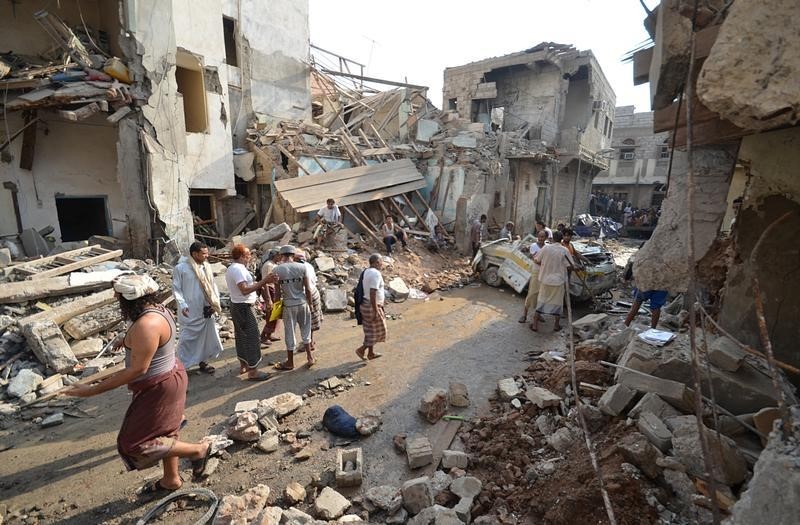By Stephanie Nebehay
GENEVA (Reuters) - The U.N. Human Rights Council on Thursday declined to set up an independent inquiry into abuses in Yemen, instead calling on a national inquiry to investigate by violations by all sides, including the killing of civilians and attacks on hospitals.
The move disappointed activists, who, along with the U.N. High Commissioner for Human Rights, had called for an independent probe, especially into air strikes by a Saudi-led Arab coalition backing the Yemeni government.
The United Nations blames the coalition strikes for 60 percent of some 3,800 civilian deaths since March 2015.
The alliance has been fighting the Iran-allied Houthi movement in Yemen since March 2015 after the group took over the capital and forced the internationally recognised and Saudi-backed President Abd-Rabbu Mansour Hadi into exile.
The Yemeni National Commission of Inquiry reports to Hadi.
"For now Saudi and its allies, like the U.S., have shown they can still block efforts at the U.N. to ensure accountability for war crimes in Yemen," Salma Amer, U.N. Advocacy Officer at the Cairo Institute for Human Rights Studies said in a statement.
The 47-member rights council adopted a resolution brought by Arab countries that asks the United Nations to provide "substantive technical assistance and advice, including in the areas of accountability and legal support".
This should enable the Yemeni probe to "complete its investigatory work concerning allegations of violations and abuses committed by all relevant parties in Yemen".
Senior U.N. officials had seen the Yemeni issue as a test of the council's credibility after it also backed away a year ago from launching an independent inquiry.
The U.N. High Commissioner for Human Rights, Zeid Ra'ad al-Hussein, said last month that the national probe lacked impartiality as it focused on alleged violations committed by Houthi rebels and forces loyal to former President Ali Abdullah Saleh and had not worked in pursuing perpetrators.
His deputy, Kate Gilmore, urged the rights council to launch an independent inquiry, saying the Yemeni inquiry "will fail to contribute to the direly needed cohesion and stability, and to promote justice and accountability".
The European Union withdrew a stronger Dutch-led text hours before the Arab resolution was adopted by consensus. Britain, an ally of Saudi Arabia, had blocked the Dutch-sponsored draft within the EU, a U.N. official said on condition of anonymity.
The Dutch resolution would have sent a U.N. fact-finding mission to Yemen to report back on violations in March 2017.

The EU delegation said the amended Arab resolution was a "reasonable compromise text and the European Union could support the resolution".